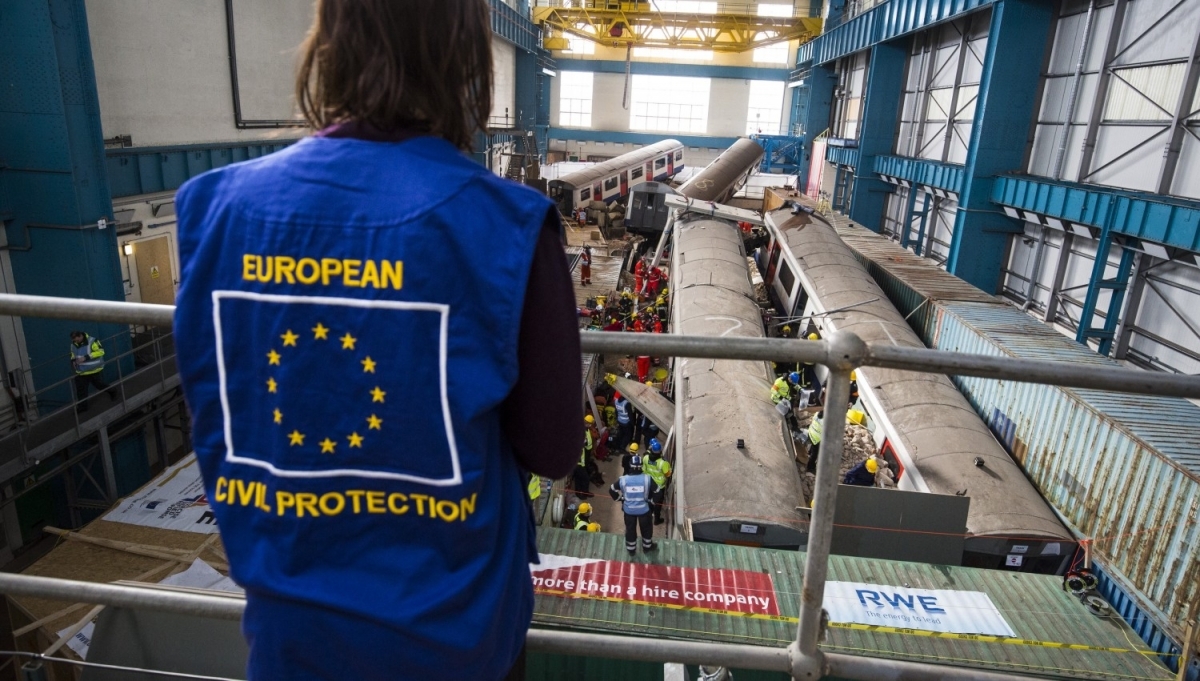
EEA EFTA Comment on a Union Civil Protection Mechanism

On 15 March 2018, the EEA EFTA States issued an EEA EFTA Comment addressing the European Parliament and the Council's proposal to amend the Union Civil Protection Mechanism (UCPM).
In recent years the number and severity of natural and man-made disasters have increased considerably, which has made more pressing the need to pursue a further integrated and updated approach to disaster management. The Union Civil Protection Mechanism was set up in 2001 as a response. It relies on resources managed at national and regional level by the authorities of the participating states. The UCPM aims to strengthen cooperation and facilitate coordination in the field of civil protection in order to improve the effectiveness of systems for preventing, preparing for and responding to natural and man-made disasters of all kinds. A Decision for a new Mechanism for the period 2014-2020 was adopted in December 2013. The Decision establishing the Union Civil Protection Mechanism was incorporated into the EEA Agreement on 27 June 2014.
Since 2013 the participating states have faced a large number of disasters with tragic loss of lives and other damaging consequences for citizens, businesses, communities and the environment. More concretely, the response to a number of recent disasters, including the humanitarian impact of the refugee and migration crisis, the lack of available assets during the 2016 and 2017 forest fire seasons, have constituted a real stress test for the UCPM. Given this context, the European Parliament and the Council have decided to undertake a targeted revision of the current UCPM legislation, COM (2017)772, in order to address the main challenges that the Mechanism faces today.
The EEA EFTA States, in their comment, welcome the overall objective of the proposal, which is to ensure better crisis and emergency support within Europe. However, after carefully studying the proposed amendments, the EEA EFTA States are of the view that the current proposal does not strike a balance between different regional capacity needs within Europe. It would appear that southern and central European States could benefit more from the core of the proposal than northern European States.
Secondly, they note that the operational aspects, including the interface between the new European system to tackle natural disasters (rescEU) and the European Civil Protection Pool, need to be clarified.
Thirdly, there are approximately two years remaining of the current UCPM, when the European Parliament and the Council will have concluded on their procedures and adopted the new legislative act amending the UCPM. As time is short, the EEA EFTA States are of the view that the focus should be on the overall review of the current UCPM, hence long-term objectives. This would result in a more balanced approach since all aspects regarding inclusive and effective civil protection cooperation would undergo a more thorough and systemic review at the same time.
Finally, The EEA EFTA States are of the view that the proposal could be more ambitious in relation to prevention and preparedness. The EEA EFTA States look forward to further discussions on how to reduce disaster risk through better planning and management and not only by allocating funds to response capacities.
What is an EEA EFTA Comment?
One of the ways in which the EEA EFTA States participate in shaping EU legislation is by submitting comments on important policy issues. A typical EEA EFTA Comment provides brief commentary and suggestions regarding Commission initiatives such as green papers or legislative proposals. The comments are endorsed by the Standing Committee of the EFTA States and officially noted by the EEA Joint Committee, after they have been sent to the relevant services in the Commission, the European Parliament and/or the Council.
More EEA EFTA Comments are available here.
Details
Related Category
Related Section
EEA